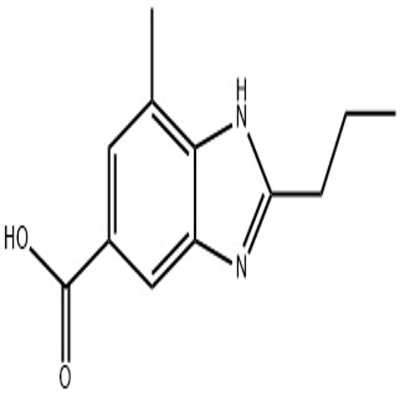-
Categories
-
Pharmaceutical Intermediates
-
Active Pharmaceutical Ingredients
-
Food Additives
- Industrial Coatings
- Agrochemicals
- Dyes and Pigments
- Surfactant
- Flavors and Fragrances
- Chemical Reagents
- Catalyst and Auxiliary
- Natural Products
- Inorganic Chemistry
-
Organic Chemistry
-
Biochemical Engineering
- Analytical Chemistry
-
Cosmetic Ingredient
- Water Treatment Chemical
-
Pharmaceutical Intermediates
Promotion
ECHEMI Mall
Wholesale
Weekly Price
Exhibition
News
-
Trade Service
2,5-dibromonicotinonitrile is a chemical compound that is commonly used in the chemical industry.
It is a colorless liquid with a distinctive pungent odor, and it is known for its ability to resist heat and ozone.
It is often used as a catalyst in the production of polymers, and it is also used as a hardener in epoxy resins.
Despite its widespread use in the chemical industry, 2,5-dibromonicotinonitrile is considered to be a hazardous chemical.
One of the main safety concerns associated with 2,5-dibromonicotinonitrile is its potential to cause respiratory irritation.
The chemical can cause coughing, choking, and difficulty breathing if inhaled, and it can also cause irritation to the eyes and skin.
Prolonged exposure to the chemical can also lead to more serious health problems, such as damage to the liver, kidneys, and central nervous system.
There are also concerns about the potential for 2,5-dibromonicotinonitrile to cause cancer.
The chemical is classified as a Group 2A carcinogen by the International Agency for Research on Cancer (IARC), which means that it is possibly carcinogenic to humans.
While more research is needed to fully understand the potential health effects of the chemical, it is recommended that workers in the chemical industry take precautions to minimize their exposure to 2,5-dibromonicotinonitrile.
In addition to the health hazards associated with the chemical, there are also safety concerns related to its use in the workplace.
2,5-dibromonicotinonitrile is classified as a hazardous substance under the Control of Substances Hazardous to Health (COSHH) regulations in the UK, which means that it must be handled with care and appropriate safety measures must be in place to protect workers from its potential hazards.
To minimize the risk of exposure to 2,5-dibromonicotinonitrile, workers in the chemical industry should take the following precautions:
- Wear appropriate protective clothing, including gloves, goggles, and a face mask.
- Handle the chemical in a well-ventilated area, and avoid inhaling the fumes.
- Limit exposure to the chemical, and take regular breaks to avoid prolonged exposure.
- Clean up any spills or leaks immediately, and dispose of any waste material properly.
- Follow all safety procedures and guidelines provided by the employer, and seek medical attention if you experience any symptoms of exposure.
It is also important for workers in the chemical industry to be aware of the symptoms of exposure to 2,5-dibromonicotinonitrile, which can include coughing, chest pain, shortness of breath, and irritation to the eyes, skin, and respiratory system.
If you experience any of these symptoms, it is important to seek medical attention immediately.
In conclusion, 2,5-dibromonicotinonitrile is a hazardous chemical that is commonly used in the chemical industry.
While it has a number of useful applications, it is also associated with a range of health and safety hazards.
By taking the appropriate precautions and following safety guidelines, workers in the chemical industry can minimize their exposure to the chemical and protect their health.
It is also important to be aware of the potential health effects of the chemical and to seek medical attention if you experience any symptoms of exposure.





![benzyl N-{2-[4-(4,4,5,5-tetramethyl-1,3,2-dioxaborolan-2-yl)phenyl]ethyl}carbamate](https://file.echemi.com/fileManage/upload/goodpicture/20210823/m20210823171124543.jpg)

